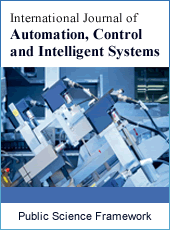International Journal of Automation, Control and Intelligent Systems
Articles Information
International Journal of Automation, Control and Intelligent Systems, Vol.1, No.2, Jul. 2015, Pub. Date: Jul. 15, 2015
Transport Fatigue Simulation of Passengers in Suburban Service
Pages: 47-50 Views: 3215 Downloads: 1197
[01]
Tatyana Grigorova, Department Transport Systems and Logistics, O. M. Beketov National University of Urban Economy in Kharkiv, Kharkiv, Ukraine.
[02]
Yurii Davidich, Department Transport Systems and Logistics, O. M. Beketov National University of Urban Economy in Kharkiv, Kharkiv, Ukraine.
[03]
Viktor Dolya, Department Transport Systems and Logistics, O. M. Beketov National University of Urban Economy in Kharkiv, Kharkiv, Ukraine.
Transport process has a negative impact on characteristics of passengers’ life activity. Passenger gets tired during the process of transportation and it has a negative impact on characteristics of passengers’ life activity. Long transportation leads to passenger free time reduction, that also has estimation cost. From the society perspective, the optimal technological parameters of passengers’ transportation in a suburban public transport can be determined considering the transport enterprises incomes from the passengers’ transportation, transport companies costs on the organization of transportation and value costs of society as a result of the transport process. The investigation aim is to measure transport fatigue changes arising among passengers from suburban transport using. Transport passengers fatigue is determined by examining changes in their regulatory system’s activity index while transportation elements. It is described as a function of time and traffic conditions during transportation, passenger’s age. The model’s result can be used in the organization of transport services suburbanites.
Passenger, Transportation Fatigue, Conditions of Transportation, Process
[01]
Krystopchuk М. E. (2009) Efficiency of passenger transportation system commuter: diss. candidate. Sc. Science. Kharkiv.: KSAME.
[02]
Kotler F. (1998) Marketing Management: Analysis, Planning, Introduction, control. St. Petersburg: Peter.
[03]
Dolya V. K. (2011) Passenger Transport. Kharkiv: "Publisher" Fort "
[04]
Spiess H., Florian M. (1989) Optimal strategies: a new assignment model for transit networks. Transportation Research, 23B, p. 83–102.
[05]
Cepeda M., Cominetti R., Florian M. (2006) A frequency–based assignment model for congested transit networks with strict capacity constraints: characterization and computation of equilibria. Transportation Research 40B, p. 437–459.
[06]
Wu J. H., Florian M., Marcotte P. (1994) Transit equilibrium assignment: a model and solution algorithms. Transportation Science, 28(3), p. 193 – 203.
[07]
Ponkratov D. P., Faletska G. I. (2014) Valuing criteria for selecting the movement of passengers in cities. Scientific notes. Interuniversity collection. Luck. Vol. 46, р. 452 – 459.
[08]
Baevsky R. M. (1984) Mathematical analysis of changes in heart rate during stress. Moscow: Nauka.
[09]
Halushko V. G. (1976) Probabilistic and statistical methods on a vehicle. Kiev: Vishcha School.
[10]
Frenkel A. (1966) Multivariate correlation model of labor productivity. Moscow: Economics.
[11]
Mitropolsky A. K. (1971) Technique statistical calculations. Moscow: Science.
[12]
Guter R. S., Ovchinsky B. V. (1970) Elements of numerical analysis and mathematical processing of experimental results. Moscow: Science.
[13]
Dreyner N. Smith, G. (1973) Applied Regression Analysis. Moscow: Statistics.
[14]
Zawadzki J. V. (1978) Design of an experiment in problems of road transport. Moscow: MADI.

ISSN Print: 2381-7526
ISSN Online: 2381-7534
Current Issue:
Vol. 4, Issue 4, December Submit a Manuscript Join Editorial Board Join Reviewer Team
ISSN Online: 2381-7534
Current Issue:
Vol. 4, Issue 4, December Submit a Manuscript Join Editorial Board Join Reviewer Team
| About This Journal |
| All Issues |
| Open Access |
| Indexing |
| Payment Information |
| Author Guidelines |
| Review Process |
| Publication Ethics |
| Editorial Board |
| Peer Reviewers |


